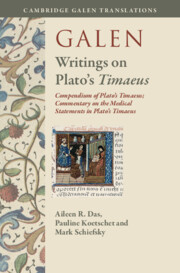Refine search
Actions for selected content:
3411444 results
Design, Production and After-lives
- Three Godrej Objects and the History of Modern India
- Coming soon
-
- Expected online publication date:
- March 2026
- Print publication:
- 01 July 2027
-
- Book
- Export citation
Development and the Tribal Question in India
- Contours, Context, and Contestations
- Coming soon
-
- Expected online publication date:
- March 2026
- Print publication:
- 01 July 2027
-
- Book
- Export citation

Antitrust and Competition Policy
- A New Foundation
- Coming soon
-
- Expected online publication date:
- March 2026
- Print publication:
- 31 March 2026
-
- Book
- Export citation

Constructions, Networks and Linguistic Change
- Coming soon
-
- Expected online publication date:
- March 2026
- Print publication:
- 31 March 2026
-
- Element
- Export citation

Sign Language Linguistics
- Exploring BSL and ASL
- Coming soon
-
- Expected online publication date:
- March 2026
- Print publication:
- 31 March 2026
-
- Textbook
- Export citation

Galen: Writings on Plato's Timaeus
- Compendium of Plato's Timaeus; Commentary on the Medical Statements in Plato's Timaeus
- Coming soon
-
- Expected online publication date:
- March 2026
- Print publication:
- 28 February 2026
-
- Book
- Export citation

Plato's Crito
- Coming soon
-
- Expected online publication date:
- March 2026
- Print publication:
- 31 March 2026
-
- Book
- Export citation

Chinese Feminisms and The Vagina Monologues
- Coming soon
-
- Expected online publication date:
- March 2026
- Print publication:
- 31 March 2026
-
- Element
- Export citation

Magnetism and Magnetic Materials
- Coming soon
-
- Expected online publication date:
- March 2026
- Print publication:
- 31 March 2026
-
- Book
- Export citation

Beyond Grammar and the Lexicon
- Indicating and Depicting in Sign Language Discourse
- Coming soon
-
- Expected online publication date:
- March 2026
- Print publication:
- 31 March 2026
-
- Book
- Export citation

Language Teacher Educators' Emotions
- International Perspectives
- Coming soon
-
- Expected online publication date:
- March 2026
- Print publication:
- 28 February 2026
-
- Book
- Export citation

Extremal Graph and Hypergraph Theory
- With Ramsey Theory
- Coming soon
-
- Expected online publication date:
- March 2026
- Print publication:
- 31 March 2026
-
- Book
- Export citation

The Cambridge Companion to Florence B. Price
- Coming soon
-
- Expected online publication date:
- March 2026
- Print publication:
- 31 March 2026
-
- Book
- Export citation

The Cambridge Guide to World Theatre History
- Coming soon
-
- Expected online publication date:
- March 2026
- Print publication:
- 31 March 2026
-
- Book
- Export citation

Latin Poetry Across Languages
- Adventures in Allusion, Translation and Classical Tradition
- Coming soon
-
- Expected online publication date:
- March 2026
- Print publication:
- 31 March 2026
-
- Book
- Export citation
Feeling Modern European Imperial Architecture
- Coming soon
-
- Expected online publication date:
- March 2026
- Print publication:
- 31 March 2026
-
- Element
- Export citation

A Metaphysics and Science of our Agency
- Coming soon
-
- Expected online publication date:
- March 2026
- Print publication:
- 28 February 2026
-
- Book
- Export citation

The Link That Divides
- Race, Empire, and the Quest for the Nicaragua Canal in the Nineteenth Century
- Coming soon
-
- Expected online publication date:
- March 2026
- Print publication:
- 31 March 2026
-
- Book
- Export citation

The History of European Union Law
- Constitutional Practice, 1950 to 1993
- Coming soon
-
- Expected online publication date:
- March 2026
- Print publication:
- 31 March 2026
-
- Book
- Export citation

The Resilience of the Old Regime
- Paths Around Democracy in Europe, 1832–1919
- Coming soon
-
- Expected online publication date:
- March 2026
- Print publication:
- 31 March 2026
-
- Book
- Export citation
